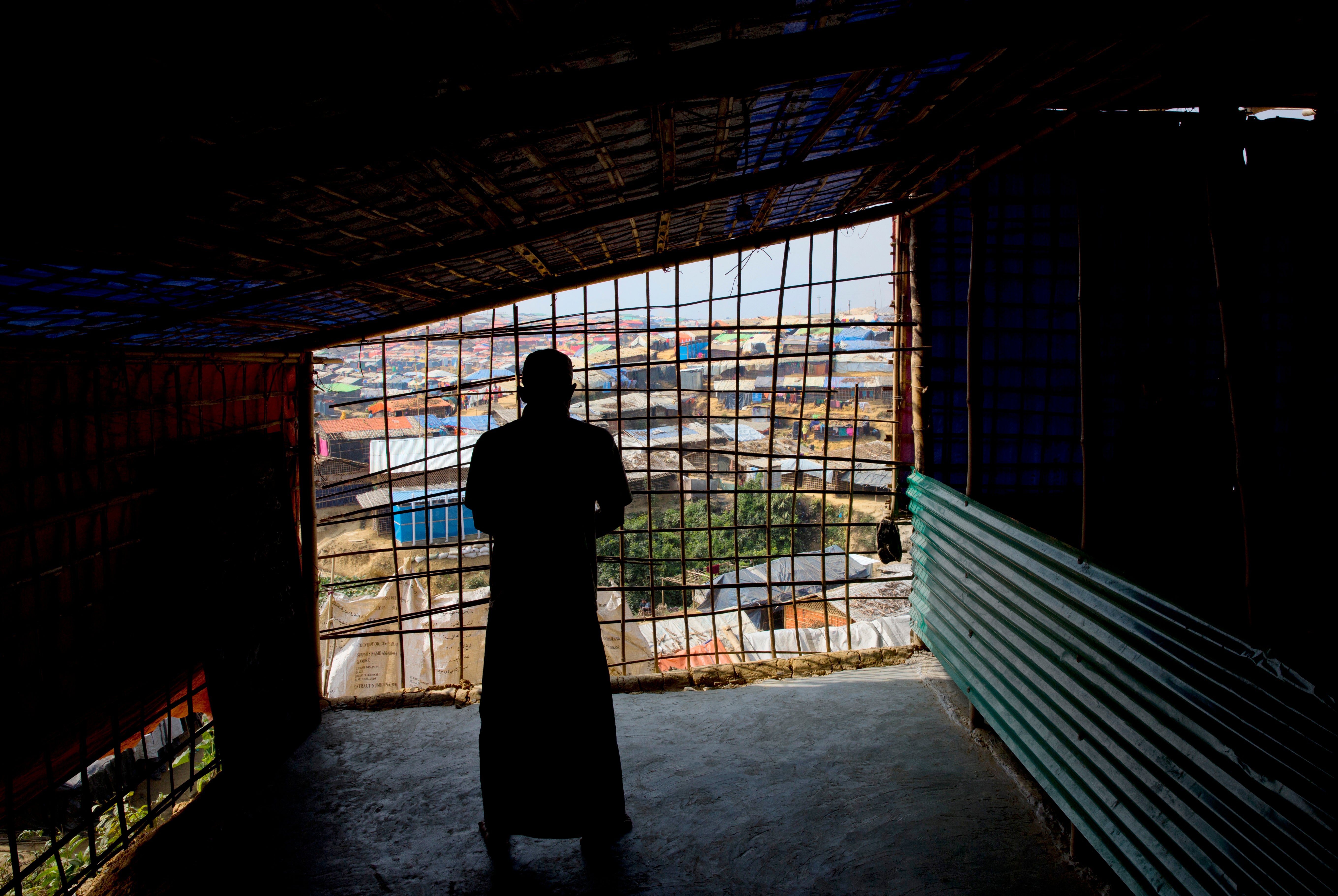Rohingya refugees fear returning to Myanmar after coup
Rohingya refugees from Myanmar living in camps in Bangladesh are condemning the military coup in their homeland and saying it makes them more fearful to return

Your support helps us to tell the story
From reproductive rights to climate change to Big Tech, The Independent is on the ground when the story is developing. Whether it's investigating the financials of Elon Musk's pro-Trump PAC or producing our latest documentary, 'The A Word', which shines a light on the American women fighting for reproductive rights, we know how important it is to parse out the facts from the messaging.
At such a critical moment in US history, we need reporters on the ground. Your donation allows us to keep sending journalists to speak to both sides of the story.
The Independent is trusted by Americans across the entire political spectrum. And unlike many other quality news outlets, we choose not to lock Americans out of our reporting and analysis with paywalls. We believe quality journalism should be available to everyone, paid for by those who can afford it.
Your support makes all the difference.Rohingya refugees from Myanmar living in camps in Bangladesh condemned the military coup in their homeland and said it makes them more fearful to return.
A counterinsurgency operation by Myanmar's military in 2017 involving mass rape, murders and the torching of villages drove more than 700,000 Rohingya Muslims into neighboring Bangladesh.
Bangladesh has hosted them in crowded refugee camps, and is eager to begin sending them back to Buddhist-majority Myanmar. Several attempts at repatriation under a joint agreement failed because the Rohingya refused to go, fearing more violence in a country that denies them basic rights including citizenship.
Refugees said Tuesday they are more afraid now that the military is in complete control.
“The military killed us, raped our sisters and mothers, torched our villages. How is it possible for us to stay safe under their control?” said Khin Maung, head of the Rohingya Youth Association in the camps in Cox’s Bazar district.
“Any peaceful repatriation will hugely be impacted," he told The Associated Press. "It will take a long time because the political situation in Myanmar is worse now.”
Officials from Myanmar and Bangladesh met last month to discuss ways to start the repatriations, with Bangladesh’s Foreign Ministry seeming more hopeful of success and officials saying they expected to begin sometime in June.
But refugees said they totally oppose the military takeover.
“We strongly condemn the coup. We love democracy and human rights, so we are worried about losing them in our country,” Maung said.
“We are part of Myanmar, so we feel the same as Myanmar’s common people. We urge the international community to raise its voice against the coup,” he said.
Bangladesh’s Ministry of Foreign Affairs said on Monday that it hopes the coup will not hamper the repatriation.
“As an immediate and friendly neighbor, we would like to see peace and stability in Myanmar. We have been persistent in developing mutually beneficial relations with Myanmar and have been working with Myanmar for the voluntary, safe and sustained repatriation of the Rohingya sheltered in Bangladesh,” it said.
The United Nations has described the Myanmar military crackdown on the Rohingya as a form of genocide. In total, more than 1 million refugees are being sheltered by Bangladesh.
Monday's coup was a dramatic backslide for Myanmar, which was emerging from decades of strict military rule and international isolation that began in 1962.
Subscribe to Independent Premium to bookmark this article
Want to bookmark your favourite articles and stories to read or reference later? Start your Independent Premium subscription today.